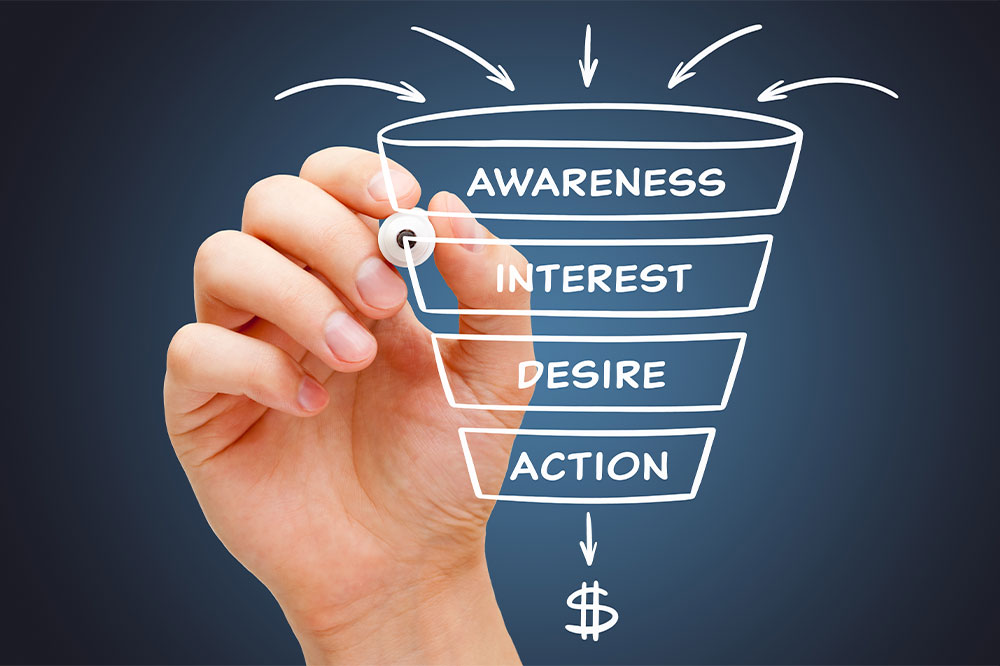Understanding the Significance of Funnel Marketing
Funnel marketing is vital for business success, helping companies understand customer journeys from awareness to advocacy. It improves customer retention, builds brand loyalty, and enhances overall sales efficiency using strategic models and advanced tracking software. Implementing effective funnel strategies can reduce customer churn and foster long-term growth. This article covers key components of funnel marketing, including awareness, consideration, conversion, loyalty, and advocacy, while emphasizing the role of modern funnel management tools to optimize customer engagement and business performance.

The Significance of Funnel Marketing in Business Growth
Retaining loyal customers is a key indicator of a company's success. To achieve this, businesses must integrate customer experiences into strategic decisions. However, assessing this process can be complex without a clear framework. Funnel marketing offers a solution by mapping the customer journey from the initial contact to purchase and beyond. This approach helps businesses enhance customer engagement, build brand loyalty, and improve overall performance.
What is Funnel Marketing?
Funnel marketing visualizes the steps a customer takes before making a purchase, guiding businesses through each phase of engagement — from awareness to loyalty. This method simplifies tracking, improves targeted marketing efforts, and strengthens customer relationships. Rooted in early 20th-century concepts like the AIDA model, funnel marketing focuses on creating awareness, generating interest, fostering desire, and prompting action. This cohesive process makes business operations more strategic and effective.
This approach is crucial because companies worldwide lose billions annually due to customer churn. Implementing a well-structured funnel strategy can reduce these losses by streamlining the customer journey. Different models cater to B2B and B2C sectors, aiding both online and offline sales. Funnel management platforms enhance visibility of customer interactions, allowing for better targeting and retention through effective tracking tools.
Key Elements of Funnel Marketing
The funnel diagram represents a process that narrows as it progresses, starting broad with awareness and ending with advocacy. Although models vary, a typical sequence includes awareness, consideration, conversion, loyalty, and advocacy. The top of the funnel attracts attention through brand awareness, while the bottom encourages customer advocacy and referrals.
Awareness
Building brand recognition and creating engaging content to attract potential customers. This stage lays the foundation for future interactions and sales.
Consideration
Demonstrating unique value propositions to stand out from competitors, convincing customers to consider your brand.
Conversion
Turning interested prospects into paying customers through targeted offers and seamless purchasing processes.
Loyalty
Maintaining ongoing engagement via emails, discounts, and social media to foster repeat business.
Advocacy
Encouraging satisfied customers to recommend the brand, expanding reach through word-of-mouth marketing.
Role of Funnel Software
Modern funnel platforms incorporate features like email automation, content distribution, and data analytics. They support sales, marketing, and customer service, helping organizations build strong customer bases. Funnel tracking tools monitor customer behavior, enabling businesses to personalize interactions and improve satisfaction. Customizable to specific needs, these platforms reduce manual work, streamline data collection, and visualize future trends. Proper implementation requires alignment with organizational policies and trained staff to maximize effectiveness.
Note:
This blog offers valuable insights across various topics. While our research aims to provide accurate information, readers should consider it as part of broader research efforts. We disclaim responsibility for data discrepancies or missing offers, and advise readers to explore additional resources for comprehensive understanding.










